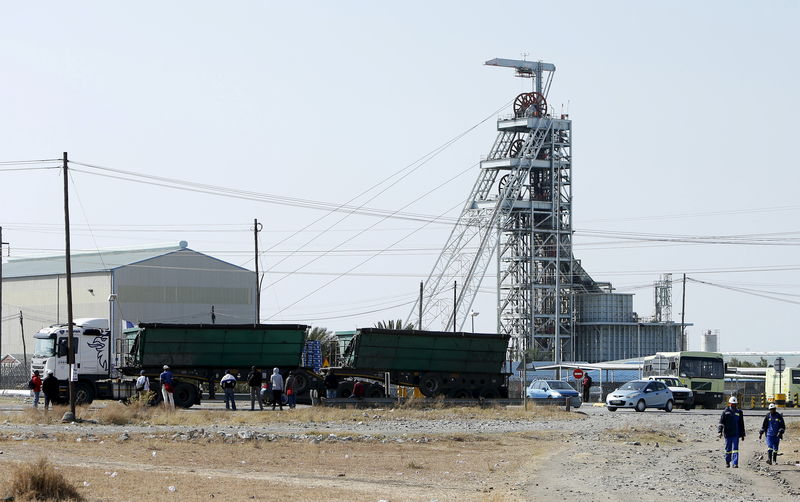
Sibanye-Stillwater Suspends Night Shift After Employee Killed During Strike
JOHANNESBURG (Reuters) – Sibanye-Stillwater said on Thursday it would temporarily suspend night shift work after one employee was killed and others injured during overnight protests at its South African gold operations. The firm’s shares fell more than 3 percent in early trade, in response to Wednesday’s decision by South Africa‘s competition regulator to approved its […]

JOHANNESBURG (Reuters) – Sibanye-Stillwater said on Thursday it would temporarily suspend night shift work after one employee was killed and others injured during overnight protests at its South African gold operations.

The firm’s shares fell more than 3 percent in early trade, in response to Wednesday’s decision by South Africa‘s competition regulator to approved its takeover of Lonmin but with a six-month freeze on job cuts and the ongoing strike as the company.
The Association of Mineworkers and Construction Union (AMCU), which represents around 43 percent of Sibanye-Stillwater’s workforce in South Africa, downed tools on Wednesday night after wage talks with the company broke down.
The National Union of Mineworkers (NUM) said one of its members was shot dead while four others were seriously injured overnight at Sibanye-Stillwater’s Beatrix mine in the Free State province.
Sibanye-Stillwater’s spokesman James Wellsted said he could not give details about how the employee was killed.
Wellsted said the firm could not yet estimate what impact the strike and the night operation suspension would have on production.
Sibanye-Stillwater agreed to a three-year wage agreement with three unions, including the NUM, Solidarity and UASA last week ending months of negotiations. However, it failed to reach an agreement with AMCU, promting the strike.
Gold producers in Africa‘s most industrialised economy argue that above-inflation wage hikes have added to the cost burden in the bullion industry, which has been hit by depressed prices and labour unrest. Inflation stood at 5.1 percent in October.
Unions have said they want their members to earn a living wage, citing hardships caused by a stagnating economy.
Late on Wednesday, the Competition Tribunal said it had approved a deal for Sibanye-Stillwater to buy troubled platinum miner Lonmin for 285 million pounds ($364 million) in an all-share deal that would create the world’s second largest platinum miner on the condition that there be no layoffs for six months following its implementation.
By 0953 GMT Sibanye-Stillwater shares were down 3.6 percent to 9.08 rand.
(Reporting by Tiisetso Motsoeneng and Tanisha Heiberg; Editing by James Macharia)
